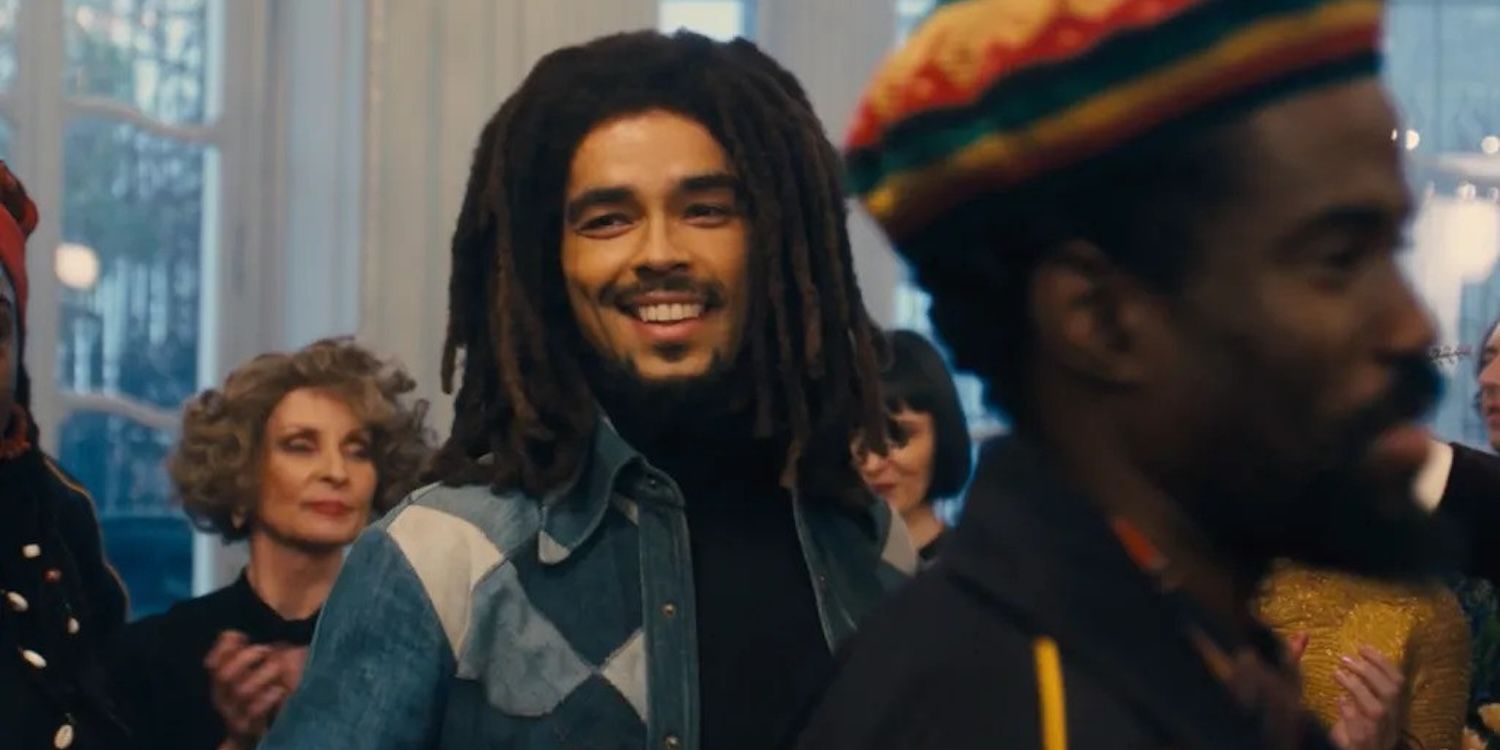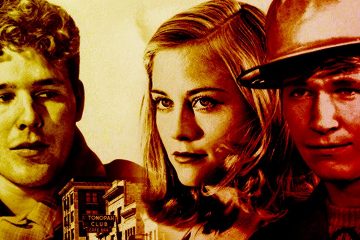Often dramatic, lurid and emotionally fraught, biopics can be gratuitous in their portrayals of real-life figures. Bob Marley: One Love defies genre convention with its subtle, gentle approach. Rather than exploring the entirety of Marley’s life story, One Love zeroes in on a particular, pivotal era in Marley’s life. Vignettes of Marley’s past — including his childhood, his discovery of the Rastafari religion and meeting his wife Rita — are featured in hazy memory sequences, Bob Marley: One Love is a smaller, intimate, and more insular portrait of the artist and his closest friends.In the mid 1970s, Jamaica is viciously divided, struggling with great political unrest. In the midst of the chaos, Bob Marley decides to throw a concert, intending to unite the country. However, when violence strikes close to home, Marley embarks on a self-imposed exodus and is soon followed by his friends, bandmates and family. All of this leads up to the recording and release of his legendary album Exodus and the corresponding tour. Yet along the way, Marley learns that fame comes at a price, and that some things cannot be overcome.Marley, his family and his bandmates in The Wailers are all portrayed with nuance. The result is a biopic with a sense of gentleness and tenderness, and this is not surprising given that Marley’s widow Rita, his daughter Cedella and son Ziggy co-produced the film alongside Jeremy Kleiner, Dede Gardner and Robert Teitel. Bob Marley: One Love focuses heavily on Marley’s personal relationship with the Rastafari religion and spirituality — showcasing how that affects his lifestyle, his approach to music and the way he interacts with people. It also touches on Marley’s background as an interracial child in Jamaica, such as his troubled relationship with his white father — and the the long-lasting effects his father’s voluntary absence had on him. But the emotional subtlety and soft-spoken delivery of the film allows audiences to come to their own conclusions about Marley’s life, the Exodus tour and the political climate of the 1970s.
Often dramatic, lurid and emotionally fraught, biopics can be gratuitous in their portrayals of real-life figures. Bob Marley: One Love defies genre convention with its subtle, gentle approach. Rather than exploring the entirety of Marley’s life story, One Love zeroes in on a particular, pivotal era in Marley’s life. Vignettes of Marley’s past — including his childhood, his discovery of the Rastafari religion and meeting his wife Rita — are featured in hazy memory sequences, Bob Marley: One Love is a smaller, intimate, and more insular portrait of the artist and his closest friends.
In the mid 1970s, Jamaica is viciously divided, struggling with great political unrest. In the midst of the chaos, Bob Marley decides to throw a concert, intending to unite the country. However, when violence strikes close to home, Marley embarks on a self-imposed exodus and is soon followed by his friends, bandmates and family. All of this leads up to the recording and release of his legendary album Exodus and the corresponding tour. Yet along the way, Marley learns that fame comes at a price, and that some things cannot be overcome.
Marley, his family and his bandmates in The Wailers are all portrayed with nuance. The result is a biopic with a sense of gentleness and tenderness, and this is not surprising given that Marley’s widow Rita, his daughter Cedella and son Ziggy co-produced the film alongside Jeremy Kleiner, Dede Gardner and Robert Teitel. Bob Marley: One Love focuses heavily on Marley’s personal relationship with the Rastafari religion and spirituality — showcasing how that affects his lifestyle, his approach to music and the way he interacts with people. It also touches on Marley’s background as an interracial child in Jamaica, such as his troubled relationship with his white father — and the the long-lasting effects his father’s voluntary absence had on him. But the emotional subtlety and soft-spoken delivery of the film allows audiences to come to their own conclusions about Marley’s life, the Exodus tour and the political climate of the 1970s.
#Bob #Marley #Love #Sonically #Sumptuous #Exercise #Subtlety
Note:- (Not all news on the site expresses the point of view of the site, but we transmit this news automatically and translate it through programmatic technology on the site and not from a human editor. The content is auto-generated from a syndicated feed.))



